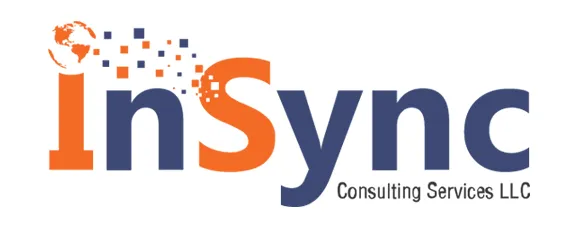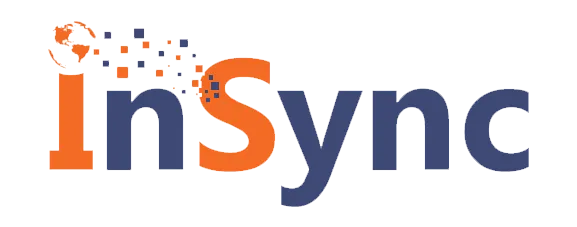
The Role of Technology in Modern Healthcare Staffing
Custom HTML/CSS/JAVASCRIPTHealthcare is an essential part of our lives, and the people who work in this field are true heroes. But even heroes need help, and that's where technology comes in. Today, we'll talk about how technology is changing the way we hire and manage healthcare workers, making everything more efficient and effective.
Challenges in Healthcare Staffing
Finding the Right People
One of the biggest challenges in healthcare staffing is finding the right people for the job. There are many different roles in healthcare, from doctors and nurses to administrative staff and technicians. Each role requires specific skills and qualifications, and it can be hard to find people who fit these criteria.
Managing Schedules
Another big challenge is managing schedules. Healthcare facilities like hospitals and clinics are open 24/7, and they need to make sure there are enough staff members working at all times. This can be very tricky because it involves coordinating shifts, dealing with last-minute changes, and making sure that no one is overworked.
Training and Development
Healthcare is a field that is always changing. New treatments, technologies, and regulations are introduced all the time. This means that healthcare workers need ongoing training and development to stay up-to-date. Organizing this training can be very time-consuming and expensive.
Burnout and Retention
Working in healthcare can be very stressful, and many workers experience burnout. This can lead to high turnover rates, meaning that healthcare facilities are constantly having to hire and train new staff. This is not only costly but can also affect the quality of care that patients receive.
The Impact of These Challenges
Impact on Patient Care
When healthcare facilities are understaffed or staffed with less experienced workers, the quality of patient care can suffer. Patients might have to wait longer for treatment, and they might not get the level of care they need.
Financial Costs
Hiring and training new staff members is expensive. When there is a high turnover rate, healthcare facilities have to spend a lot of money on recruitment and training. This can take away from other important areas, like improving patient care or upgrading equipment.
Employee Well-being
When healthcare workers are overworked and stressed, their well-being is at risk. This can lead to burnout, which not only affects the individual but also the entire team. Burnout can lead to more sick days, lower productivity, and higher turnover rates.
Operational Inefficiencies
Without the right staff in place, healthcare facilities can experience operational inefficiencies. This can mean longer wait times for patients, more errors, and overall lower quality of care. It can also make it harder to implement new technologies and treatments.
How Technology is Transforming Healthcare Staffing
Recruitment and Hiring
Online Job Platforms
Technology has made it easier to find and hire healthcare workers. Online job platforms allow healthcare facilities to post job openings and reach a larger pool of candidates. These platforms often have filters that help match candidates with the right qualifications to job openings.
AI and Machine Learning
Artificial Intelligence (AI) and Machine Learning are being used to streamline the hiring process. These technologies can scan resumes, conduct initial interviews, and even predict which candidates are most likely to be a good fit. This saves time and ensures that only the most qualified candidates move forward in the hiring process.
Scheduling and Shift Management
Scheduling Software
Managing schedules has become much easier with the help of scheduling software. These programs allow managers to create and adjust schedules quickly and easily. They can also send out notifications to staff members about their shifts, reducing the chances of miscommunication.
Mobile Apps
Many scheduling software programs come with mobile apps, making it easy for staff members to check their schedules, request time off, or swap shifts from their phones. This convenience helps to reduce stress and ensures that everyone is on the same page.
Training and Development
Online Training Programs
Ongoing training is crucial in healthcare, and technology has made it more accessible. Online training programs allow healthcare workers to learn at their own pace and on their own schedule. This flexibility makes it easier for them to stay up-to-date with the latest developments in their field.
Virtual Reality (VR)
Virtual Reality (VR) is being used to provide hands-on training without the need for physical resources. For example, VR can simulate a surgical procedure, allowing trainees to practice in a safe, controlled environment. This type of training is not only effective but also engaging and fun.
Employee Well-being
Wellness Apps
Technology is also being used to support the well-being of healthcare workers. Wellness apps offer resources like meditation guides, exercise routines, and stress management tips. These tools can help workers manage their stress and prevent burnout.
Telehealth for Employees
Telehealth isn't just for patients; it can also be used to support healthcare workers. Employees can have virtual consultations with mental health professionals, making it easier for them to get the help they need without taking time off work.
Operational Efficiency
Electronic Health Records (EHR)
Electronic Health Records (EHR) systems have revolutionized the way patient information is stored and accessed. These systems make it easy for healthcare workers to access patient records, share information with other providers, and ensure that patients receive the best possible care.
Automation
Automation is being used to handle routine administrative tasks, such as billing and scheduling appointments. This frees up healthcare workers to focus on more important tasks, like patient care. Automation can also reduce the chances of errors, improving overall efficiency.
Technology is transforming healthcare staffing in many exciting ways. By making it easier to recruit and hire the right people, manage schedules, provide training, and support employee well-being, technology is helping to address some of the biggest challenges in healthcare staffing.
At InSync Consulting Services, we are committed to helping healthcare facilities leverage technology to improve their staffing processes. Our comprehensive staffing solutions are designed to meet the unique needs of the healthcare industry, ensuring that you have the support you need to provide the best possible care to your patients.
Schedule a Consultation Now
If you're ready to take your healthcare staffing to the next level, contact InSync today to schedule a free consultation.
Let us show you how our innovative solutions can help you manage your staffing needs more efficiently and effectively.
Together, we can create a healthier, happier, and more productive workplace for your healthcare professionals!






